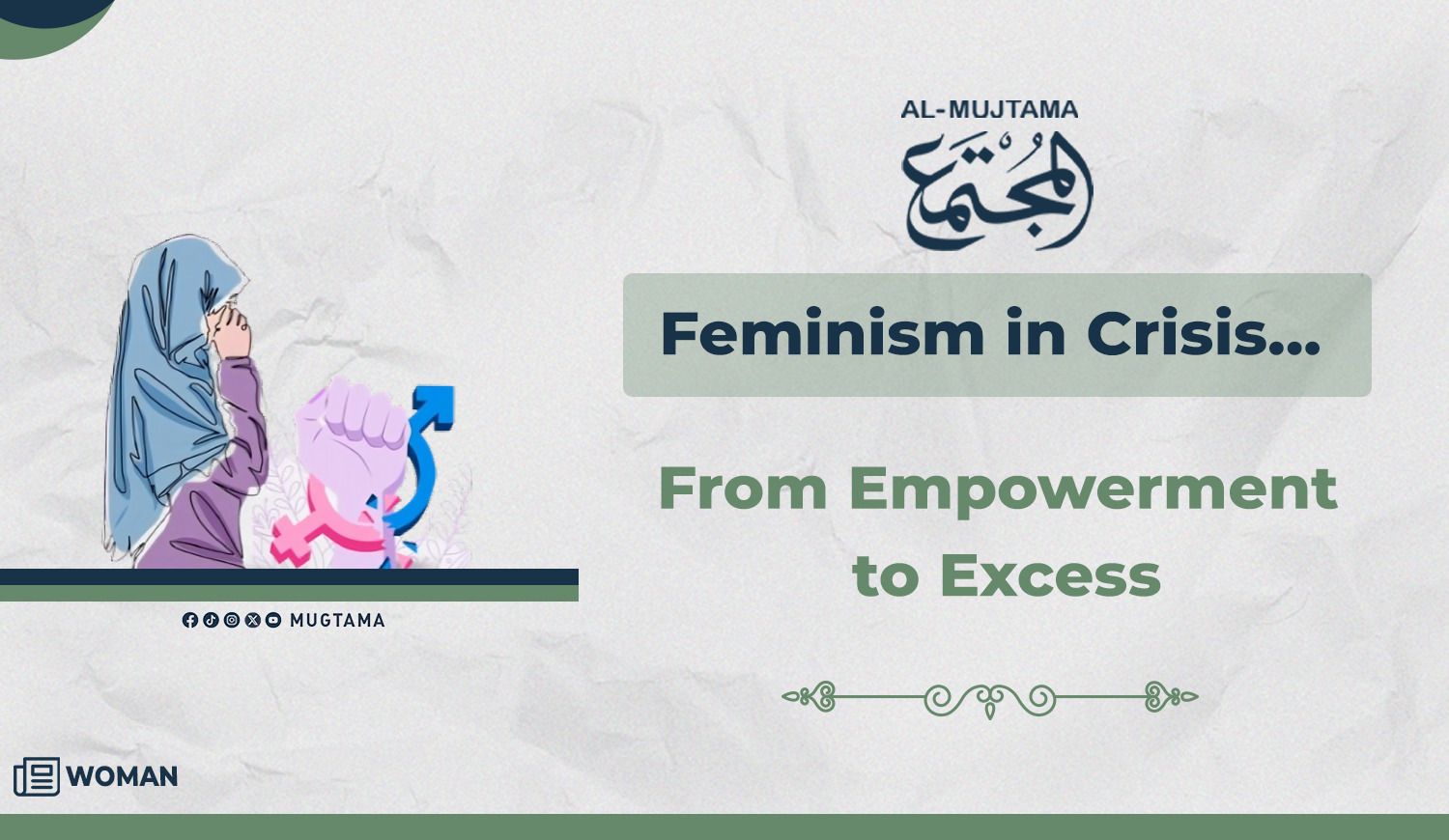Feminism in Crisis… From Empowerment to Excess

Feminism emerged in the
19th century under the weight of systemic injustice against European women,
taking complex and multifaceted forms. The French Revolution served as a major
source of inspiration for women in France and later across Europe to demand a
set of basic human rights. At the time, women were earning half—or even less
than half—the wages of men, while also being denied virtually all other rights.
They were also subjected to a societal view that deemed them inferior to men in
terms of humanity itself. Simone de Beauvoir was even driven to cry out for the
recognition of women as fully human beings, equal to men, and not merely
animals in human form.
If the harsh conditions
surrounding European women were the catalyst for the rise of the feminist
movement—following the Declaration of the Rights of Man and of the Citizen in
the late 18th century, then the spread of socialism across Europe, and the movement’s
transition to the United States with its surrounding human rights
struggles—then a question arises: why did this movement migrate to Muslim Arab
countries? What motives drive feminists there to demand rights they already
enjoy—rights that their Western counterparts never dreamed of, either before or
after?
Feminism in Islam: An Honorable
History
For the past 14
centuries, Muslim women have lived under a divinely revealed constitutional
framework. Through a series of commands from Allah, Muslim women have enjoyed
rights and duties that not only ensure equality but sometimes even preference.
Let us present some of
these divine texts—examples that might astonish their Western counterparts.
Allah says regarding equal reward for men and women who perform good deeds,
emigrate, endure harm for His cause, and engage in Jihad: “And their Lord responded to them, "Never will I
allow to be lost the work of [any] worker among you, whether male or female;
you are of one another. So those who emigrated or were evicted from their homes
or were harmed in My cause or fought or were killed - I will surely remove from
them their misdeeds, and I will surely admit them to gardens beneath which
rivers flow.’” (Aal Imran: 195)
In another ayah, Allah
establishes the religious guardianship of believing men and women over one
another, highlighting their equal responsibility and reward: “The
believing men and believing women are allies of one another. They enjoin what
is right and forbid what is wrong and establish prayer and give zakah and obey
Allah and His Messenger. Those - Allah will have mercy upon them. Indeed, Allah
is Exalted in Might and Wise.” (At-Tawbah:
71)
Islamic legislation
even sets specific laws to protect women from verbal abuse, preserving their
dignity and honor: “And those who accuse chaste
women and then do not produce four witnesses - lash them with eighty lashes and
do not accept from them testimony ever after. And those are the defiantly
disobedient.” (An-Nur: 4) Allah also states: “And due to the wives is similar to what is expected of
them, according to what is reasonable.” (Al-Baqarah: 228)
It is not only Qur’anic
ayahs that assert equality between men and women with clarity and ease. The
prophetic hadiths also reinforce and confirm these clear meanings. ‘A’ishah
(may Allah be pleased with her) narrated that the Prophet ﷺ said, as
reported by Ahmad: “Yes, women are of the same
nature as men.” He is not her
master, and she is not subordinate to him.
How Islam Protects Women's Rights and Emotions?
When and Why Did Feminism Arise in
the Arab World?
At the end of the
Ottoman Empire’s rule—or more precisely, during the period of cultural decline
that continues to this day—Muslim women suffered from deep societal
restrictions. These included denial of the right to education, employment, and
political engagement—rights Islam had originally granted them, respecting their
feminine (emotional) nature, physical limitations, and unique strengths in
other domains.
To be fair, it was not
only women who were deprived of their rights. Many men and entire social
classes were also denied their entitlements. Poverty and ignorance spread. It
was during this time that Qasim Amin wrote his book on women's rights. His
writings did not stray far from the frameworks and principles established by
Islam, but they nevertheless shocked society by challenging cultural norms that
had stood for centuries. As the symbolic authority of the Caliphate neared
collapse, feminist ideas became entangled with political ideologies, and
legitimate calls for rights veered away from the Islamic foundations that had
long regulated society.
How Feminism Deviated from Its
Legitimate Path?
No fair observer denies
that the emergence of feminism in Europe was justified by the circumstances in
which it developed—even if those circumstances did not exist in Muslim
countries. The movement’s original demands—fair wages, education, and voting
rights—were legitimate. But over time, deviation from these rights caused many
to lose sympathy with the movement.
This deviation included
turning the relationship between men and women into a type of adversarial,
biological conflict between the sexes.
It also involved
attempts to strip women of their natural roles as mothers and wives, pushing
them to mimic masculine traits—as though their humanity could only be fulfilled
by becoming men themselves. This extremism alienated a wide segment of former
supporters.
Another deviation was
the attempt to replace men in various societal roles—political, intellectual,
and social—regardless of the effect of female nature on decision-making. In
many cases, this led to ideological extremism in those fields because decisions
were made without regard for the natural attributes of women.
What began as a
legitimate demand for justice turned into a fearsome ideology. Feminism today
seeks to erase all natural differences between the sexes and to impose women
into all roles—physically, mentally, and emotionally—whether suitable or not.
This comes at the expense of many of their essential human roles, without which
society cannot function properly.
Is it not time for the
wise to intervene and restore balance—so that each gender may fulfill the role
assigned to it, in accordance with its nature and capabilities?
Dark Reality for Working Western Women
-------------------------------------------------------------











